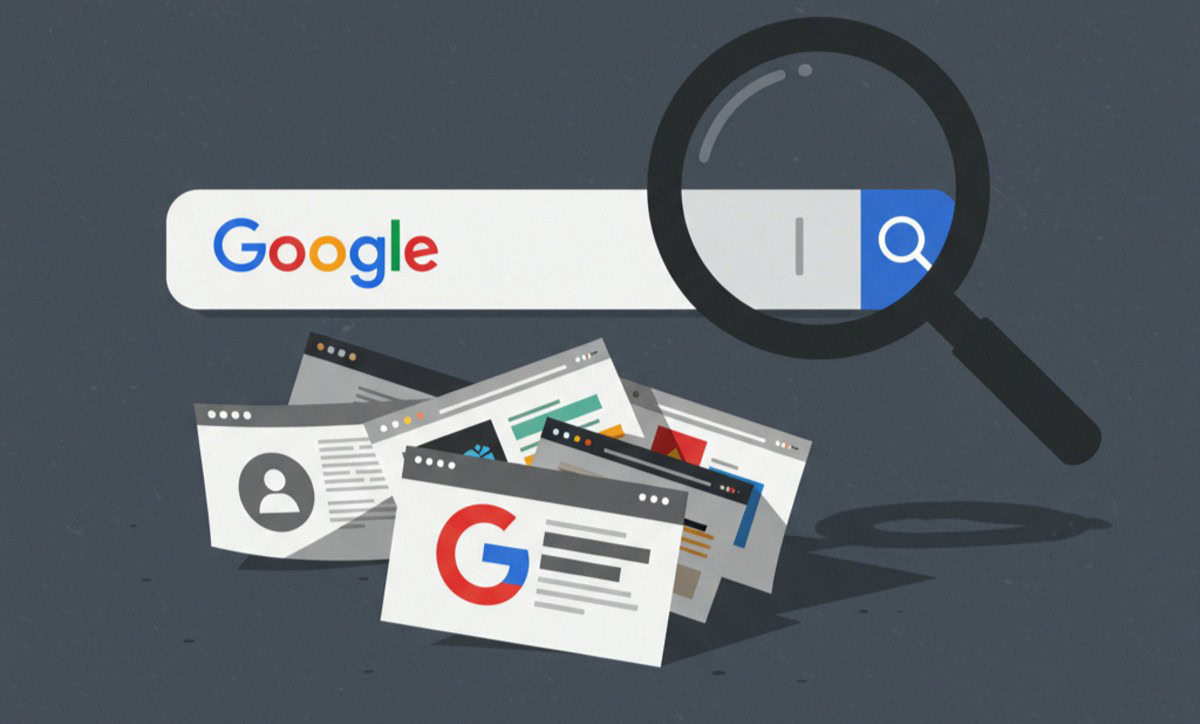The Web’s New Threat: Why Publishers Say Google AI Censors Websites

Contents

A recent report suggests that Google’s AI Overviews feature is “censoring” independent websites by drastically cutting their search traffic. This raises concerns about unsustainable economics for creators, potentially drying up diverse content and allowing Google to monopolize information. The “free” AI answers come with a hidden cost: undermining the web’s foundation and threatening original content.
In an age where artificial intelligence promises instant information, Google’s “AI Overviews” aim to provide quick, concise answers directly within search results. This convenience might feel like a beneficial, “free” service to users. However, a significant and alarming accusation has emerged from the independent publishing community. They feel that Google is allegedly using its AI advancements to systematically diminish independent websites, effectively raising the question: is Google AI censoring websites? What could be the long-term cost to the internet?
This serious concern comes from Nate Hake, the founder and CEO of Travel Lemming, an independent travel publishing platform. In a detailed report, Hake presents a stark picture, suggesting that Google’s pursuit of an AI-first search future might be inadvertently, or even deliberately, controlling the flow of information and jeopardizing the online content.
Hake’s core allegation is that Google strategically implemented a series of impactful algorithm updates between 2023 and 2024. He argues these changes weren’t just about improving general search quality. These were allegedly designed to prepare the ground for Google’s “AI-first” search paradigm. The proposed shift is profound: instead of directing users to third-party websites for detailed answers, Google intends to provide those answers directly within its own search interface through AI Overviews. This shift, according to Hake, has reportedly had a catastrophic effect on countless independent publishers. They allegedly have witnessed a dramatic drop in search traffic, often exceeding 95%. This reduction in visibility is why many are starting to ask if Google AI censors websites.

Imagine years spent building a valuable online resource, crafting unique and insightful content, only to see your primary source of visitors—organic search traffic—vanish almost overnight due to opaque algorithmic adjustments. Hake asserts this has been the grim reality for thousands of smaller content creators. The timeline he outlines is particularly unsettling: after initially promoting “content by people, for people,” Google subtly removed the “written by people” guideline in September 2023. Immediately following this, the algorithms began rolling out changes that, in Hake’s view, effectively decimated independent site traffic. Then, in 2024, once this alleged “demolition” phase was complete, Google swiftly launched its AI Overviews. This feature summarizes third-party content directly in search results, inevitably reducing the incentive for users to click through to the original sources.
A Double Standard and the Reddit Connection: Further Questions of AI Censorship
Hake’s report further deepens the concern about whether Google AI censors websites by highlighting what he describes as a disturbing double standard. Smaller, independent sites could be facing silent “shadowbans” with no clear appeal process. Meanwhile, larger media organizations reportedly received different treatment. These special treatments could include manual penalties that allowed for structured appeals and opportunities for recovery. Compounding this, Hake points out that Google reportedly gave advance notice to some large sites about impending spam policy violations while simultaneously impacting compliant independent publishers. This disparity raises questions about fairness and transparency in Google’s algorithmic enforcement.
A particularly eye-opening detail involves Reddit. At the very moment independent sites were experiencing a sharp decline in visibility, Reddit’s search traffic reportedly soared. This happened just before Google announced a $60 million AI licensing deal with the platform. Hake suggests this isn’t merely coincidental. It could have derived from a calculated move to secure content from large entities for Google’s AI models, potentially at the expense of smaller, uncompensated creators, further fueling the “Google AI censors websites” narrative.

In a remarkable admission in October 2024, Google reportedly invited Hake and other affected publishers to its headquarters. There, they got an apology, with Google acknowledging that the traffic declines weren’t the publishers’ fault. However, this acknowledgment came with a sobering reality: Google reportedly stated that traffic might never fully recover. Why? Because search had “permanently changed with AI.” This statement solidifies the concern: if content creators are told their efforts will no longer generate the traffic vital for their survival, what incentive remains to produce that content? This “permanent change” driven by AI could be seen as a form of systemic Google AI censorship.
The Unsustainable Economics: When the Source Material Dries Up
This brings us to a fundamental concern about the future of online information. What happens if the independent content creators are no longer able to sustain themselves? We are talking about the very lifeblood of the open web and the source material for these AI models. If the economic incentives evaporate because traffic and compensation dwindle, the well of original content will inevitably begin to dry up.
Hake argues that Google’s overarching strategy points to a future where:
- AI Overviews are the primary source of answers, negating the need for users to visit external websites.
- Google directly monetizes both questions and answers through features like “Ads that Answer.”
- Only a select few large media partners remain, tasked with feeding Google’s insatiable AI models.
- Independent voices, crucial for a rich and varied information landscape, are systematically marginalized or eliminated. This scenario directly relates to the fear that Google AI censors websites through algorithmic means.
The implications extend far beyond business models. As Hake rightly emphasizes, millions of individuals rely on Google daily for answers to crucial questions. They ask about careers, health, faith, and voting. If Google gains unprecedented control over the answers to these questions by controlling the source material—potentially by allowing Google AI to censor websites from visibility—it effectively wields immense influence over public discourse and individual choices. This isn’t just an economic shift; it poses a significant threat to information diversity, critical thinking, and the very spirit of the open web.

The convenience of “free” AI answers is undeniably appealing in the short term. However, it’s crucial for consumers and regulators alike to consider the long-term consequences. Are we, as a digital society, prepared to accept a future where the internet’s independent voices might be reduced to a curated pond, controlled by a single entity, all in the name of instant gratification? The hidden cost of this convenience might prove to be a price too high to pay for the future of information if Google AI censors websites that are vital to its foundation.
What’s your reaction?
Love0
Sad0
Happy0
Sleepy0
Angry0
Dead0
Wink0







Leave a Reply
View Comments